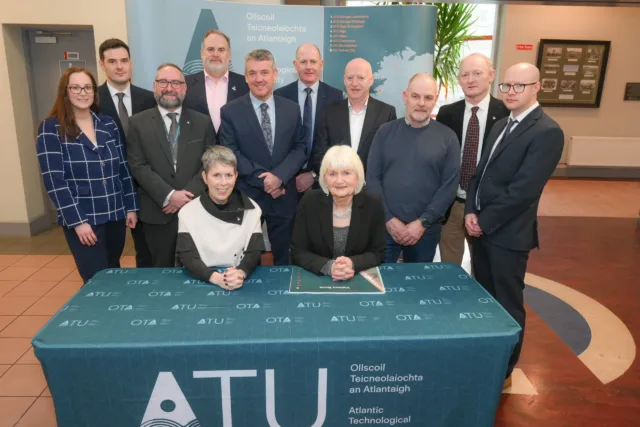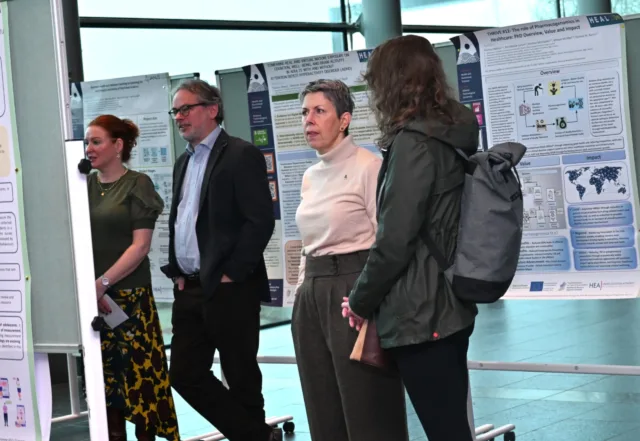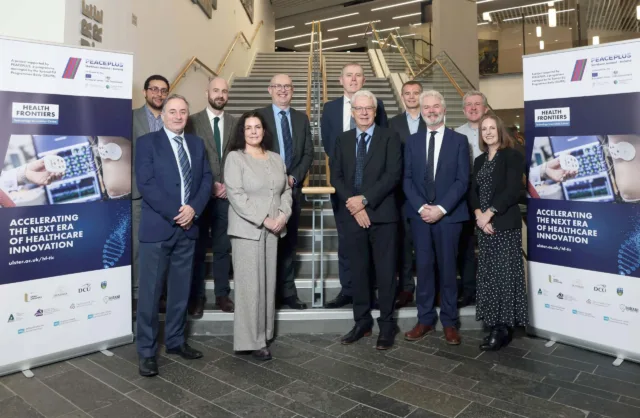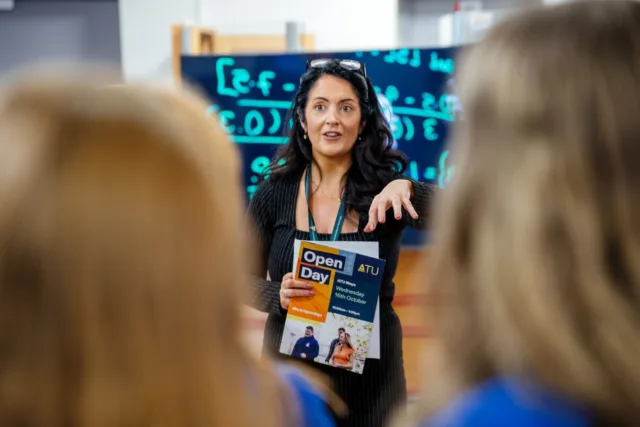ATU partner in €9.8 million GRASP project launched to tackle Green Skills Shortage in cross-border construction sector
The Green Accelerator Skills Programme (GRASP) - a €9.8 million cross-border initiative designed to address the significant green skills deficit currently present in the cross-border construction sector – has been officially launched.
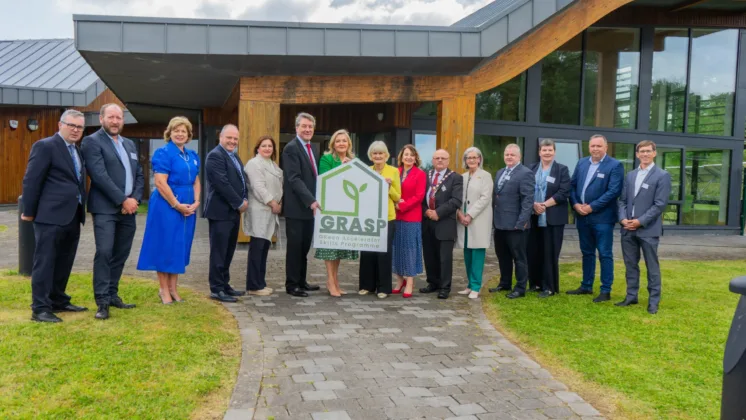
The Green Accelerator Skills Programme (GRASP) – a €9.8 million cross-border initiative designed to address the significant green skills deficit currently present in the cross-border construction sector – has been officially launched.
GRASP is supported by PEACEPLUS, a programme managed by the Special EU Programmes Body (SEUPB). The project brings together a diverse network of partners across nine counties, operating from CREST (Centre for Renewable Energy & Sustainable Technology) Enniskillen. Lead Partner South West College (SWC) is working in collaboration with Southern Regional College (SRC), North West Regional College (NWRC), Irish Central Border Area Network (ICBAN), Cavan and Monaghan Education and Training Board (CMETB), Donegal Education and Training Board (DETB), Mayo, Sligo, Leitrim Education and Training Board (MSLETB), Atlantic Technological University (ATU) and Future Cast.
Atlantic Technological University will be responsible for over €1.1 million of this GRASP initiative and among other things, will offer fully funded free online part time programmes to help address skills deficits in this area.
Key highlights planned as part of this project including the development and delivery of 50 funded green skills programmes, labor activation academy, household carbon literacy programmes and a green skills schools outreach programme.
GRASP’s cross-border approach will result in a joint Green Skills Training Strategy with the potential to deliver high-quality, accredited training and certifications, leading to greater regulatory compliance, economic growth, and environmental sustainability. In turn, it will contribute to the achievement of ambitious net-zero CO2 emission targets set for 2030 and 2050.
Commenting on the launch of the €9.8 million Green Accelerator Skills Programme (GRASP), Minister for Further and Higher Education, Research, Innovation and Science James Lawless TD said: “The PEACEPLUS initiative is an investment and enabler, promoting innovative cross-border and cross-community collaboration. The GRASP project is a clear example of that in action in Ireland, bringing together education and training providers from both sides of the border to tackle the Green Skills shortage in the construction sector. This work is essential to ensuring the sustainability of our housing infrastructure, North and South.
“I am also pleased to see the programme’s focus on promoting female participation in construction and exploring new apprenticeship opportunities. Ambitious and inclusive regional development is vital, and I look forward to seeing the long-term impact of this important initiative.”
Speaking at the launch event, Minister of State for Further and Higher Education, Research, Innovation and Science, Marian Harkin TD said: “I’m delighted to be here in person to see the progress being made through the PEACEPLUS programme.
“This is a real opportunity for governments on both sides of the border to work together in creative ways that bring real benefits to people, especially those living along the border and in Northern Ireland. But it’s not just about policy; it’s about partnership. Organisations need to come together to develop shared solutions, and that’s exactly what we’re seeing here.
“The focus on developing Green Skills in the construction sector, led by South West College and supported by three ETBs from the West and North-West, North-West Regional College, Southern Regional College and ATU, is a fantastic example of that.”
The Head of Faculty of Engineering and Design at ATU, Dr Trevor McSharry highlighted that “this initiative is a wonderful opportunity for ATU to further strengthen its cross border connections and create new and exciting offerings to help upskill the current workforce in the region for an evolving sector, where sustainability and productivity are becoming more and more important.”

